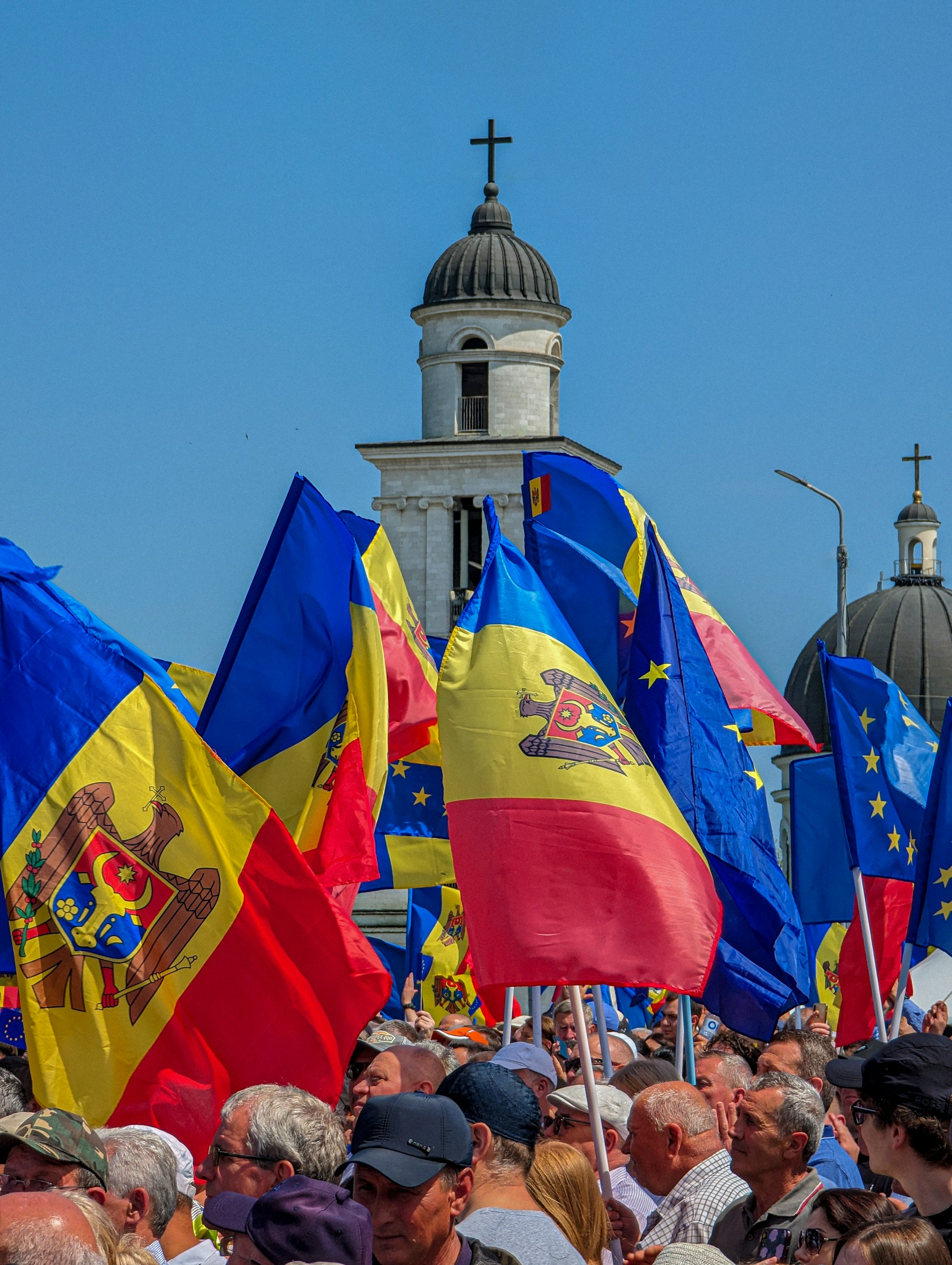By Paul T.
Moldova stands at a crossroads, and the stakes could not be higher. The upcoming elections are more than a contest of political parties—they are a choice between continuing a path of European integration or returning to a past dominated by corruption, oligarchy, and geopolitical subservience. If pro-Russian forces seize power, the consequences for Moldova will be profound and long-lasting.
A Break from the European Path
The European Union has been a generous partner, providing funding, technical support, and a roadmap for reform. Yet Brussels expects tangible progress in return. A pro-Russian government would halt the reforms that have been painstakingly initiated over the past years, effectively sending Moldova backwards by at least a decade. The country’s European trajectory must remain irreversible; progress cannot be traded for political expediency. Moldova needs to move forward, not regress.
Political Instability and Marginalisation
History warns us that pro-Russian governments rarely tolerate strong, independent leadership. The presidency of Maia Sandu, which has symbolised Moldova’s European orientation, would face attempts at limitation, suspension, or outright obstruction. Internationally, Moldova would once again become a captive state—stigmatised, isolated, and ignored. Unlike European partners, Russia does not recognise equality in partnership: countries are either vassals or enemies. Moldova’s ability to assert itself regionally and defend its national interests would vanish.
Oligarchic Revival and Economic Collapse
A pro-Russian government would inevitably usher back an era of monopolies, unfair competition, and entrenched oligarchic influence. Foreign investment would shrink and eventually disappear, as no serious company wants to operate in a country dominated by corruption, unpredictability, and systematic theft. Poverty, social problems, and economic stagnation would deepen, eroding the progress made in recent years.
A Judiciary Under Siege
Justice, though imperfect, has advanced compared to previous eras of pro-Russian dominance. Yet a return to power for these forces would mean a complete politicisation of the judiciary. Judges and prosecutors would be appointed to serve oligarchic and political interests, undermining accountability and the rule of law. Moldova would be trapped in a system where state institutions exist to protect a few, not the nation.
Return of Corruption and Illicit Financial Schemes
Moldova risks re-entering a shadow economy reminiscent of the infamous “theft of the billion,” benefiting Russian financiers and organized crime networks. The country’s recent emergence as an attractive destination for serious foreign investment would be reversed, replaced by a “fiscal playground” for oligarchs and mafia networks.
Energy Dependence and Geopolitical Vulnerability
Pro-Russian governance would restore Moldova’s dependence on Russian gas, exposing the country to political and economic blackmail. Prices would fluctuate according to Moscow’s whims, energy diversification efforts would be blocked, and European interconnections would be dismantled. Moldova would once again be at the mercy of Gazprom, with little capacity to secure reliable, competitive energy.
International Isolation and Social Polarisation
Tensions with neighbouring states and the EU would rise, undermining economic growth and social cohesion. Moldova’s citizens overwhelmingly support European integration; a pro-Russian government would deepen polarisation, spark protests, and trigger mass emigration. Those who remain would be left hoping for a distant, uncertain return to Europe.
A Return to a Painful Past
In short, a pro-Russian victory would drag Moldova into a gray era of corruption, economic collapse, and international isolation. The country would suffer a setback of 15–20 years in economic development, with national security and opportunities for entrepreneurs and young professionals sacrificed. Moldova would be anchored in a world of lies, corruption, and violence—far removed from the European future its citizens aspire to.
The choice is clear: the nation can either continue its journey toward European integration, prosperity, and sovereignty—or return to a past marked by oppression, economic stagnation, and dependence. Moldova’s future depends on making the right choice!
Photo by Sasha Pleshco on Unsplash










